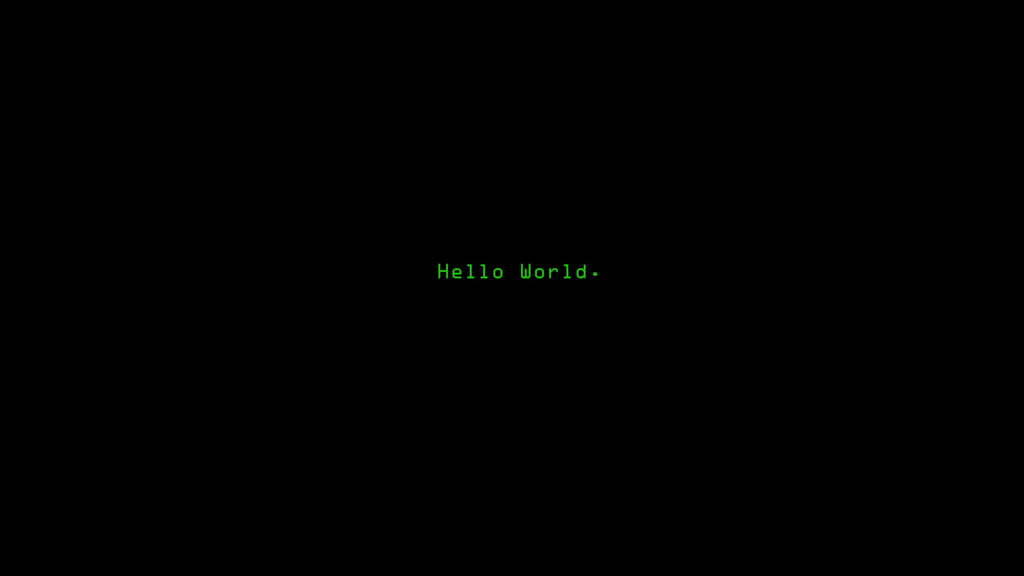I get it.
I don’t love Snaps either.
However, a thing I try to remember and wish others would as well is simply this: Canonical is a company. Their goal is to make money. They are not out to create the ultimate free as in freedom Linux distribution.
This does (to my mind) not make them evil, and ESPECIALLY doesn’t make the folks who work there evil. It makes them participants in the great horrible game that is Capitalism, and expecting anything else from them is going to lead to heartache, as you’ve seen.
If you want a Linux distro that shares your preferences and won’t try to jam snaps down your throat, you might consider giving Debian a whirl as many others have.
Continuing to ride the Ubuntu train and raging against the dying of the light when it continues chugging in the direction it’s been headed for YEARS seems … futile :)
Agreed.
For any (k)ubuntu refugees, do as I did and switch to Debian!
Or as I did and switch to fedora! (Debian’s also a really good option)
Nice to see that KDE is so well supported! I’d been running Manjaro KDE the last time I had Linux installed on my desktop but I may give Debian a try this time around.
How do snaps make money for Canonical?
There’s no way to install a snap except through Canonical’s snap store (or snap store proxy, which gets them from Canonical’s snap store).
They’re charging for kernel security live patches. They charge for LTS. If they get enough buy-in re: snaps, they’re going to do the only thing a for-profit company can do.Red Hat and SUSE also charge for extended support, it’s literally the only fucking way to make money off of a distro
Canonical still offers 5 years standard at the enormous cost of 0.0$
Are you under the impression that they write all the patches?
No, but they actually do write some patches and they also do all the menial work, testing and verification to keep a piece of software serviceable for 10 years
If you think it’s easy, go and attempt it yourself. The greatest cure for people talking shit about needed effort, according to my experience…
I’m not gonna speak for Canonical but snaps enable commercial vendors to more readily ship their apps on the Ubuntu platform.
Money is literally the very incarnation of evil via the Talisman it bears.
If they trying to make money then they are, not a fiber of otherwise, Evil.
You’re decision to not recognize the blatant & obvious Talisman does not make you correct. It’s not your choice. It’s the choice of that occult chant and signature.
Humans are inherently evil. There is but a thin veneer we call “civilization” that stops of from beating each other to death with whatever object can be brought to hand.
And what does any of this have to do with the price of tea in China? :)
Ubuntu is just getting worse and worse. I was pretty happy running Ubuntu server for years after moving from Gentoo; I jag lost interest in spending time taking care for that server and wanted something easy.
I went to Debian half a year ago and it’s been great. Should’ve done it earlier.
I gave up Ubuntu when they switched Firefox to a snap
I gave up Ubuntu when they switched to the Unity desktop. ugh!
Yup, that was a whole kerfuffle. That is what got me to stop installing Ubuntu.
I feel that.
Three years ago I moved to fedora and RHEL based distros like Rocky for my devices and servers because I’ve gotten suck of Canonical’s shit. Don’t regret it.
It’s astonishing.
Fedora introduced a whole new distro where you can’t install anything with dnf anymore and people love it. People love using flatpaks instead (yes I know of all the shortcomings, but you can always choose another install method for that broken package). And ubuntu users just hate ubuntu for what they do. The difference may also be that fedora gives a choice to the user and does not directly force it
@babara@lemmy.ml
The difference with Fedora Atomic, which I think you refer to, is that it’s totally open. For example, people started using the OCI containers differently than Fedora intended, which resulted in uBlue and stuff like Bazzite.Also, no one forces you to use Flatpak. You can still use Distrobox and use Pacman/ APT/ DNF/ whatever you prefer and export your apps that way. It’s just that Flatpak “won” and doesn’t have many drawbacks, and is very convenient. I mostly like them.
And, most importantly, Fedora is the fronteer of innovation.
There were many projects and ideas that failed, but many more succedded (Wayland, image based distros, etc.), and Project Atomic is just one more “testing ground” that is well thought out imo. Therefore people are expecting to “test out” new generation Linux stuff, it’s just part of Fedora. If you don’t like that, use Debian instead.I can recommend you to give Fedora Atomic a chance, it’s an extremely nice family of distros (e.g. Bluefin/ Aurora, Bazzite, etc.)!
Edit: one more thing is that Fedora is, in contrast to Ubuntu, not controlled by a company. RedHat doesn’t have nearly as much influence as people think, it’s mainly community driven, and therefore choices aren’t (in theory) influenced by $$$
And, most importantly, Fedora is the fronteer of innovation.
What I find impressive about this is that they turn this into a stable product. Early Fedora Core was more of an experimental distribution but those times are long gone (IIRC around Fedora 19).
Well there is immutable, which you probably refer to with Fedoras new distro, and then there is Canonical pushing their shitty snap format, and kinda non-sideloading. Can’t wait for the day when apt only ever allows to install snap packages.
It is absolutely a different situation if it is opt-in. If Ubuntu made Snaps opt-in, people might not like them but it’d be a minor critique instead of fleeing the distro.
Fedora Silverblue is in an entirely different ball game. You can’t use dnf because it’s an immutable image based system where you can’t make direct changes to the Root system without making use of the rpm-ostree & VCS mechanisms. You’re making a conscious choice by using Fedora Silverblue, and the pros out way the cons for most people making that choice.
In contrast Fedora Workstation allows you to use dnf just as normal because it’s not an immutable image based system.
Ubuntu doesn’t make use of any such system so their reliance on containerized user-space apps isn’t a technical one.Right. I just installed OpenSUSE MicroOS to try out, and it’s the same idea. I agree with some of the anti-snap rhetoric. Closed, Canonical-centric system for profit; linking placeholder debs to download a snap. But the philosophy of all user applications come as chunky but robust packages that (almost) don’t interfere with each other and the system - I think that might be the future for safer computing for non-technical users.
People love using flatpaks instead (yes I know of all the shortcomings, but you can always choose another install method for that broken package).
Not on Ubuntu nor Fedora, but yes: If a “larger” package breaks on update and there is no fix available and I use that application on a pretty much daily basis, then I remove it and install the Flatpak variant.
Flatpaks are slower, do not work super well with Wayland (especially scaling, some applications have GIANT text, some have 5 pixels large text, but fortunately I was able to circumvent those issues for most applications I use via Flatpak), and you need to run another system for updates and updates are friggin slow.
There is also this monstrosity ...
It is not fault-proof and it throws an error if there no older drivers, but this prevents accumulation of outdated Nvidia driver packages (at one point I had nearly 30 different variants installed, resulting of a couple of gigabytes of unused drivers that are “updated” every time I ran
flatpak update).flatpak-update () { LATEST_NVIDIA=$(flatpak list | grep "GL.nvidia" | cut -f2 | cut -d '.' -f5) flatpak update flatpak remove --unused --delete-data flatpak list | grep org.freedesktop.Platform.GL32.nvidia- | cut -f2 | grep -v "$LATEST_NVIDIA" | xargs -o flatpak uninstall flatpak repair flatpak update }
On the other hand, the applications provided via Flatpak just work.
And messing with 32 bits multilib dependency hell for Steam or installing pretty much half of Kde just for Kdenlive simply isn’t something I want.
I think they got the nvidia driver accumulation thing straightened out. On Fedora 40, I had it automatically remove a bunch of older versions and now it only lists the 64 and 32 bit versions I expect it to.
$ flatpak list | grep nvidia nvidia-550-76 org.freedesktop.Platform.GL.nvidia-550-76 1.4 system nvidia-550-76 org.freedesktop.Platform.GL32.nvidia-550-76 1.4 systemEdit: looks like it’s fixed by this.
I think you have a typo in your last paragraph.
Flatpak should run better on Wayland compared to Snaps. Not to mention Flatpak has much better XDG Portal Integration.Should.
Ubuntu has long suffered from NIH syndrome, constantly inventing its own non-standard components (snaps, Unity, etc) and trying to make them “win” by forcing them on their own users. Reminds me of Microsoft with its non-standard Internet Explorer, its own non-standard version of Java and others.
The lesson is to use a Community distro, not a Corporate distro. When the distro’s goals align with its community’s, even a distro based on Ubuntu will usually be better than straight Ubuntu. For example Mint keeps the good things about Ubuntu (in Mint’s opinion of course), removes the bad things like Snaps, and adds other features that the community wants that Ubuntu won’t (like built-in Flatpak support among other things).
The lesson is to use a Community distro, not a Corporate distro.
Okay, but you don’t see these kinds of complaints with Fedora or SUSE. While I don’t necessarily disagree with your core point (community is better), this doesn’t seem like an issue with corporations so much as an issue strictly with Canonical.
Been running KDE on fedora for the last 6 years after giving up on everything Ubuntu based back then. Haven’t thought to look elsewhere since as its been just fine
I went through something similar 2 years ago. I was sold in PopOS, mainly because Debian based distros were easier to find help for. Almost 2 years ago I started using Fedora on my PC while still having PopOS on my laptop. Within 3 weeks I was setting my laptop up with Fedora as well, and I’ve never looked back (other than the regular distro-hopping bursts, lol).
It has been very good & stable over the last few years. I switched because kbuntus ancient kernel caused me issues so I needed something more current, and its worked ever since so I never looked elsewhere. Running Linux isn’t a hobby for me, these are my work systems, so I don’t hop without a push.
Edit: I’ve just rolled out fedora 40 and plasma 6 is running great
Yeah, I get you. My PC is for work, and my laptop can be used for work, but it’s mostly my gaming rig (together with my Steam Deck), and my distro-hopping unit as well.
I used Fedora 40 with KDE 6 since the Beta, but KDE and I just don’t get along, so I’m on Gnome 46 on both devices now.
One of the huge advantages on Linux is that you can be back in business in 20 minutes if you choose to try another distro. Similar to Windows and Mac, said Noone ever 🤣🤣
Someone being enraged about snap on behalf of Windows users was certainly a take I didn’t know I needed.
This along with other things is another reason why i will continue to recommend noobs start with pop os and more advanced users to use bazzite.
I do wish pop os would change their name to cosmic os though. Their current name is too close to poop os 😅
CosmOS?
That’s fantastic! Obviously no one will ever use it.
or something more cheerful like GladOS
Don’t forget the random punctuation mixed in. It’s like the title of a kids’ tv show.
never thought of “poop os” but I think Pop!_OS is a stupid name, it’s the only reason I avoided it and chose Nobara instead lol
Disappoint is a sober word here. I am actually pissed at the casual arrogance of Ubuntu and its parent company Canonical.
I’m actually baffled that this would come as a surprise to people. Canonical has been like this for a long time and you’d have to have blinders on to not see it. They are hell-bent on doing things their way and ignoring the wider Linux community and even their users. That is, of course, their prerogative and to some degree I even welcome their attempts at differentiating their distro from others. As a user though you should be aware of their history and the apparent direction they’re heading.
I just wish they’d stop stalling and went all-in on snaps already, since that’s pretty obviously where they’re headed.
deleted by creator
Baah. KBIN just ate my reply.
Point form since I forgot to save to clipboard first.
Tried mint - booted to black screen
Tried ubuntu - got silly crashes like in the post trying to install stuff. It also wanted me to sign up for some sort of support package with 5 free devices to get updates or something. Also, trackpad scrolling was uncontrollable. Would scroll up half a screen or more as I lifted my fingers off.
Tried fedora - only 100% and 200% zoom option, and no right click.Managed to fix the fedora issues with some command line found on Google and a gnome customising addon.
n00b here, just playing. Can’t migrate fully as I need VBA and Playit Live etc.
I do wonder what kind of gardware you have… And if it’s maybe defective?
Asus F555D - 12G RAM, AMD R8 M350DX GPU and a sticker that says Radeon Dual Graphics. That’s probably what was tripping up the system booting to a black screen.
I took a similar path but eventually ended up on openSUSE for my desktop. I’ve been pretty happy with it. I can’t think of a single issue that I wasn’t able to quickly resolve. I even got CUDA installed and working in under an hour.
I could barely make out the straw man hiding between the ads. The author is working hard for them clicks!
Idk, I probably haven’t used Debian derivatives long enough, but isn’t installing random .deb-s somewhat of a bad practice? I mean, repos exist for a reason (ignoring the fact they usually have like 3 packages in the official repos)
But even if it is, it shouldn’t prevent installing released debs you find for example on GitHub repositories.
It doesn’t prevent you from doing so. It just doesn’t launch the store app when you double click a . deb.
But it seems to be a bit better when using the terminal
Some things we would want to install aren’t in the official repos. Downloading the deb file is a solution to that for newer users.
You should try MX, it’s Debian based, and they have their own repo full of .deb, up to date, never break
“I understand that Canonical has every right to make the decision about their product.”
That seems fair. There are loads of distros available so why not try something else if you don’t like Ubuntu?
Linux and other mainstream Unices such as FreeBSD or OpenBSD int al (that’s not something I ever thought I’d be able to say a few decades back) are not Windows or Apples or whatevs. You do you and not them!
If Ubuntu fails to scratch your itch then move on. Debian is the upstream for Ubuntu so you’ll probably be fine with that instead. There is loads of documentation for Debian via the wiki etc and of course most Ubuntu docs will apply as well.
You only got part of the quote, and not the part that really is what the article is about.
I understand that Canonical has every right to make the decision about their product. You want to promote Snap over Deb, fine. But don’t do it in a deceiving manner.
And there is a pretty reasonable middle ground:
If you would like to keep your ‘Snap store’ deb-free, fine! At least have the decency to provide Gdebi by default for local deb file installation.
I dont mind snaps but blocking deb installs by default on file clicks is a bad look.
Give a shot for Fedora!
Does this mean you have to use apt-get to get the deb version again? Or is there an even more complicated command? I’m wondering what happens for the other Ubuntu flavors. I’m usually running Kubuntu.
Even apt is deliberately broken:
“[If] You use ‘sudo apt install chromium’, you get a Snap package of Chromium instead of Debian”
This was where I rage quit. Who in the hell thought it was a good idea?
Same here, it’s the reason why I kicked Ubuntu off my laptop. They removed any way to choose and made it such a pain to get around the Snap bullshit. I’m on Linux because I want to choose what I do with my system.
Who in the hell thought it was a good idea?
Marc Shuttleworth
Seriously? Wow. That moves the whole thing into asshole territory. I’m glad I went with a distro that prioritizes not being shitty.
🤮
Why does this break apt? Just because, I assume (I am using Debian btw), it installs a placeholder deb-package which, while running the postinst script, installs chromium via snap commands?
It doesn’t break apt, apt just prefers snaps now.
This is as they designed it.
The issue here is that people don’t like this other thing and so the distribution which has been moving towards this other thing for like a decade now I guess is the bad guy for continuing to work towards that goal.
It doesn’t break apt, Canonical just broke their version of apt
justto prefer snaps now.FTFY
OK, so it’s actually apt itself that’s different on Ubuntu, not just fake/virtual/transitional deb packages in their repos.
Canonical even patched apt a bit so it prefers to install snaps first.
It is about installing .deb that you manually downloaded from somewhere. You can’t install them by double clicking on them, you have to install from command line.
That’s precisely I changed to MX Linux. I won’t use ubuntu for a long time I guess.




























